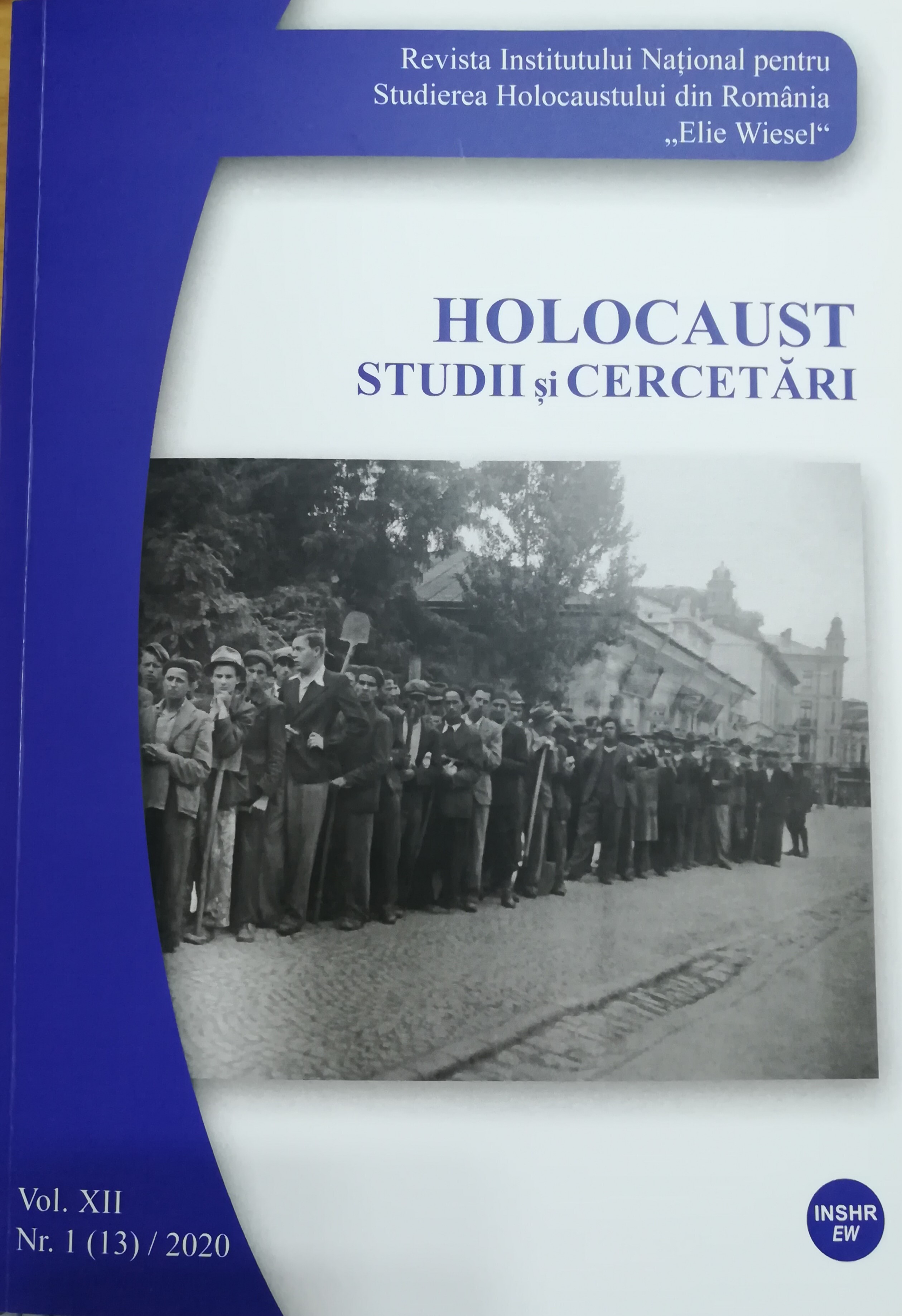Das Sag- und Denkbare über die rumänische Shoah
The Sayable and the Thinkable About the Romanian Shoah
Romanian Strands of Discourse, German Process to Overcome the Past and international Holocaust Research
Author(s): Armin HeinenSubject(s): Comparative history, Local History / Microhistory, Political history, Social history, Transformation Period (1990 - 2010), History of the Holocaust, Post-Communist Transformation
Published by: Institutul National pentru Studierea Holocaustului din Romania ELIE WIESEL
Keywords: Holocaust (Shoah);Romanian historiography; Holocaust research;
Summary/Abstract: The history of the Romanian Shoah has long been an unwritten story, at least in the field of Romanian historiography. In this respect, the political upheaval of 1989 stands for a new historiographical beginning. Romanian historiography was split into negationists and trivializers, into uninterested and basic researchers. But even those who promoted researchon the Holocaust remained entangled in narrow patterns of interpretation until 2003/5. The connection to the newly emerging global Holocaust research did not succeed. Numerous research reports have interpreted this fact as the result of political conditions. The first part of this article takes up on this observation. It presents the historical studies regarding the Romanian Holocaust until 2003/5, and discusses their political background. Part two asks whether international research up to 1989/2005 outside the communist area scored much better. The result is ambivalent. Part three shows why global Holocaust research, with its approaches, remained incapable of analysing the Romanian case adequately. Only the paradigmatic shift in international Holocaust research after 1989/2000, fourthly, has enabled historical scholarship to analyse the Romanian case as well. According to the concluding fifth thesis, the Romanian Holocaust historiography is characterized by a negative synchronicity with the West. This negative synchronicity has contributed to a structural heterogeneity of the Romanian Holocaust discourse and has been the cause of little international attention to the Romanian case. Today, the challenge is to apply the perspectives of current Genocide and Holocaust research to Romania, in order to turn synchronicity into a positive direction. At the same time, research on the Romanian Holocaust must become an integrated part of international Holocaust studies.
Journal: Holocaust. Studii şi cercetări
- Issue Year: XII/2020
- Issue No: 13
- Page Range: 249-272
- Page Count: 24
- Language: English, German
- Content File-PDF

